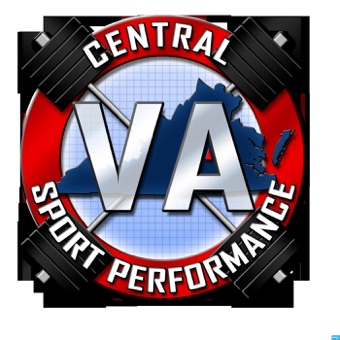
CVASPS Podcast, Strength and Conditioning Info From The Worlds Top Sport Performance and Physical Preparation Practitioners
Central VA Sport Performance
Thanks for checking out The CVASPS Podcast! On our show will bring the best practitioners in the field of strength and conditioning from around the world together to discuss all aspects of athlete development. Each show has a unique theme that is designed to help your athletes in improve performance. We hope you enjoy the show, and if you do, like all our content, feel free to share it with anyone is the sport performance field who you feel will find value in the content.
- 31 minutes 18 secondsEpisode 30: Season 4 Episode 30 David Deets- “Train them for the sport instead of for numbers”
On this week’s episode I got to sit down and discuss the preparation process with basketball players with a coach that has been on my “wish list” for guests to have on The Podcast, David Deets. David has had a really awesome voyage that to his position now at Tulsa, and this has helped him formulate a unique philosophy and mindset when it comes to all aspects of preparation. Throughout the 30-minute discussion Coach Deets and I get into:
1) Where the origin of his passion for the warm up aspect of perpetration, but for training and practice came from
2) The value of keeping similar patterns in the warm up, but changing the movements as often as possible
3) Examples of how he prescribes these variations including specific examples of some of these patterns
4) Why and where we find value in barefoot training
5) What training them for the sport not the numbers mean to him
Such a great conversation with a fantastic practitioner who has a unique perspective on developing the basketball players, and a discussion that, quite frankly, has made me have some second thoughts about some things that I do, specifically with our daily practice warm ups. Coach Deets is really doing great work, and I’m so grateful for his open and candid sharing today. Make sure you give him a follow on The Gram at @ coachdeets23 and on the Twitter-sphere at @coachdeets. I truly hope you took as much from this discussion as I did, and if so, and could please help me out with three HUGE favors I’d be super grateful. If you could please: 1) share this with a colleague that would find value in the episode; 2) subscribe to the show on your favorite podcast platform; and 3) while you’re there, please leave us a 5-star review. Thank you so much for helping us grow The Podcast.
1 April 2024, 4:00 am - 31 minutes 5 secondsEpisode 29: Season 4 Episode 29- Federico Pizzuto- “Find the balance between what we want and what they really need"
Today we have a really awesome discussion about connecting the physical aspects within our vocation and how it can be related back to the technical tactical side of the games we work in with Federico Pizzuto. Throughout this sensational 30-plus minute chat, Federico and I get into:
1) The model that he utilizes when connecting the technical tactical side with the physical preparation of the athletes.
2) What he’s looking at to build out his progressions, and the ways it impacts buy in with the players
3) Where autonomy for the players fits in his perpetration and RTP programming.
4) Video’s impact on communicating the goals and objectives of the program
5) Simple ways he has found success building out individualization in his programming
So much great insight from a practitioner working at the highest level, this episode is full of great, practical, real world tactics that we can all utilize (or adapt from) with our return to play progressions. I can’t thank Federico enough for being so open to sharing with us today because this was absolutely fantastic. Make sure you keep up with what he’s doing up in Columbus by following him on IG @federicocapacci. If you found value in the show and could do me three huge favors I’d really appreciate it if you would: 1) share the show with a colleague, this is the best way to spread the word; 2) subscribe to the show on your favorite podcast player to stay up to date with all our shows; 3) please leave us a review to help others find our show when they search for strength and conditioning based podcasts.
25 March 2024, 4:00 am - 33 minutes 26 secondsEpisode 28: Season 4 Episode 28 Tim Kettenring- “How do we make these high outputs more repeatable?”
This week I’m fired up to sit down and talk conditioning with Tim Kettenring. Tim has been doing some awesome work helping coaches have a better understanding of how they can build bigger engines with the Conditioning Cohort. Throughout the great 30-plus minute chat, Tim and I get into
- The areas of physiology that he feels are overlooked by coaches and where coaches can look to have a better understanding of what the “cohort” is trying to teach.
- What are some of the driving questions behind his deeper dive into energy system development that has led to his desire to help coaches have a better understanding of these physiological adaptations.
- Reasons behind some of the “standoffishness” towards low intensity conditioning work, and how we could possibly counteract those
- Where the autonomic nervous system fits in their education model, and why it’s so important to understand the basics of ANS physiology and how it relates to conditioning levels and performance.
- Next steps in progressing conditioning work once the athlete has a “solid base”
- Ways to make your energy system work be a bit more practical in the team setting
A ton of great insight into what Tim is doing with, not just the course but what his training philosophy is and the driving factors behind it. Make sure you give him a follow at @timkettenring on X and tap in for more info on the training program at Conditioningproject.com. Just like all our shows, if you have found value in the show please and could do me three favors I’d greatly appreciate it if you could: 1) share the show with a colleague, this is the best way to spread the word; 2) subscribe to the show on your favorite podcast player to stay up to date with all our shows; 3) please leave us a review to help others find our show when they search for strength and conditioning based podcasts.
Who is Tim Kettenring?
Tim Kettenring is a 16 year strength and conditioning veteran with experience at every level of
sport. His current role is as the High Performance Director for Nola Gold Rugby of Major League
Rugby. Tim is also the President of Maverick Human Performance which provides coaching, consulting
and education services to athletes and coaches around the world.
Prior to his current roles, Tim was the head strength and conditioning coach at Loyola
University-New Orleans for 6 years, director of sports performance at Revolution Sports
Performance for 2 years, and assistant strength and conditioning/sport coach at Holy Cross
High School for 4 years.18 March 2024, 4:00 am - 33 minutes 35 secondsEpisode 27: Season 4 Episode 27 Carson Randall- “It’s getting back to the root of what they’re asking”
Today I have the pleasure of sitting down and discussing the development of the physical preparation programming for H2F with Carson Randall. Carson is leading the way with the development of the H2F programming, and all of its branches, helping to better prepare the best of the best, the American Soldier. Throughout the greater then 30-minute discussion Carson and I get into:
1) Where a military background both helps and hinders in the tactical training world
2) Things that coaches need to understand when making the transition to the tactical side
3) How defining terms, or at least coming together on the goals of the higher ups, is a game changer
4) Comfortable lifestyles effect on how they need to program for soldiers, and how it could be a positive for their realm of the profession
5) Making a scalable training system on a grand scale using basic and simple assessments
6) Why general training, is always general, and its supportive nature to the specific, if it’s team sport or the military
7) Educations vital role within boot camp with preparing the soldiers to make better decisions once they’re moved around the world
Such and awesome look into a unique training environment, I can’t thank Carson enough for spending the time with us today and being so open and candid in his sharing. Physical preparation for the tactical “athlete” is a realm in our vocation that is growing by the year, and a lot is due to the great work that Carson is doing with H2F, laying the foundation for more strength coaches to build upon. As with all our content, if you found value in the discussion please feel free to share the show with a colleague, and if you haven’t yet, please subscribe to the show on our favorite podcast player to stay up to date with all our shows.
11 March 2024, 4:00 am - 30 minutes 36 secondsEpisode 26: Season 4 Episode 26 Aaron Abraham- “Energy, Effort, and Intensity”
I am elated to welcome Aaron Abraham to The Podcast this week. Aaron is doing some really awesome work up at Eastern Michigan. His voyage to EMU is one that many have looked at and turned their nose up at, but as a guy who started at a Division III school I have a ton of respect for coaches who start at DII and DIII because of the unique perspectives that you can gain at those levels.
1) Pros of working at a Division II school for a starting point in your professional evolution
2) What the impact of being the son of immigrants on work ethic and humility
3) The leadership role he feels that we can play as a vocation including examples that he utilizes
4) Three terms that he teaches to dictate how the program will progress, that have nothing to do with progressions
5) Advice for coaches who are rotating in internships and could possibly be getting frustrated about it
6) Ways he has found success connecting with other practitioners, and its effect on the projection of his career.
There are so many great lessons that I learned as a DIII strength coach, and I’m so happy to hear a similar story from Aaron. A great voyage to EMU that lead to a great strength coach working in the MAC in college basketball, it really hits close to home with Old Greybeard. Aaron is doing some fantastic work up at EMU, so make sure you give him a follow on x @strengthcoacha and on IG at @strengthcoachabe to keep up with everything he’s got cooking and make sure to sign up for the newsletter while you’re checking out his content! There’s so much value in Aaron’s journey and the lessons he shared today, and I took a ton from this conversation. If you found value in it as well please feel free to share the show with a colleague, and if you haven’t yet, please subscribe to the show on our favorite podcast player to stay up to date with all our shows.
4 March 2024, 5:00 am - 31 minutes 48 secondsEpisode 25: Season 4 Episode 25 Justin Landry- “Before you can check a box you need to know where you’re starting from”
Today I am so excited to welcome Justin Landry to The Podcast. Justin is doing some absolutely great work with the development of basketball players. He’s had a really great path to get him to Atlanta that has molded a unique philosophy with his training. Throughout this aweseome 30-minute conversation Justin and I get into:
1) Driving factors behind the directions of the programming he utilizes for his athletes
2) Simple evaluations of common sequences that help him drive programming decisions
3) The role of still photos and video in his practice
4) Examples of his progressions in different mobility and stability situations
5) Autonomy’s role in his program
6) What the transfer portal has changed in his programs
7) How he defines functional training, and how that definition impacts how he evaluates and trains his guys
8) Monitoring/Tracking of practice as an evaluation of preparation
A great conversation with a fantastic practitioner who has a unique perspective on developing the athlete’s he gets to work with. Justin is really doing great work, and I’m so grateful for his open and candid sharing today. Make sure you give him a follow on The Gram at @jland_perf. I truly hope you took as much from this discussion as I did, and if so, please share this with a colleague that would find value in the episode. Also, if you haven’t subscribed on your favorite podcast platform yet and could do that for us, we would greatly appreciate it.
26 February 2024, 5:00 am - 33 minutes 50 secondsEpisode 24: Season 4 Episode 24 Ashley Muschiatti- “Sometimes I have to find the Band-Aids”
On this week’s episode of The Podcast I have the pleasure of sitting down and discussing training, nutrition, and the life on the NASCAR Circuit with Ashley Muschiatti. Ashley has a unique background and qualification of being both a Registered Dietitian and Strength and Conditioning Coach, thus qualifying her to both prescribe training and the nutritional requirements for both success in training and performance.
- The uniqueness of the athlete that she gets to work with, both as a sport but also individually
- Where each of her “hats” impact decisions with programming daily and in the long term
- Driving factors behind training and programming decisions
- Positive aspects of being a licensed nutritionist and registered dietitian and how it works symbiotically with her role as a performance coach
- How taking this different route in her education could be a great example for younger coaches to increase their marketability
- What coaches can do when they don’t travel to help best educate their athlete’s on how they can do better for themselves on “game day”
Such a cool conversation with an awesome person with a really cool job. This show was an absolute blast for me, so many unique aspects to what Ashley’s practice and the athlete’s she gets to work with, it’s really fascinating to me. I can’t thank her enough for being so open to sharing with us today. To keep up with everything she’s doing make sure you give her a follow over on Instagram at @amuschiatti. I hope you found as much value in the chat as I did, and if so, please help me out by doing three things: 1st, please share this with a colleague that you think would find value in the show, 2nd if you haven’t please subscribe to the show on your favorite podcast player, and 3rd if you could please leave us a review I’d greatly appreciate it.
Who is Ashley Muschiatti?
Ashley Muschiatti RD, LDN, CSCS is a sports dietitian and certified strength coach who has worked with high school and college athletes, as well as the general public who wants to reach their health and wellness goals. She has experience with body composition and analysis using the BodPod as well as performance nutrition counseling.
She received her B.S. in Exercise Science and B.A. in Spanish Language at Appalachian State University in Boone, NC. During her time at Appalachian State, Ashley was a thrower on the track and field team where she sits high in the school’s All-Time record books. She then went on to attend Delaware State University’s Coordinated Dietetic Program where she became a Registered Dietitian. Throughout her years of education, Ashley completed multiple strength and conditioning and sports nutrition internships at multiple NCAA Division 1 Institutions.
Ashley enjoys helping athletes reach their full potential on and off the field. She combines her experience and knowledge in strength and conditioning and nutrition to help athletes of all ages fuel properly and reach their performance goals.
Ashley lives in Charlotte, NC where she is a Performance Specialist with Novant Health Sports Performance.
Muschiatti's previous positions include:
- Performance Specialist & Registered Dietitian at Novant Health SportsPerformance
- Assistant Strength Coach & Nutrition Coordinator at Delaware State University
- Professional Strength and Conditioning Internships:
- Clemson University Basketball
- UNC Chapel Hill Olympic Sports
- Appalachian State University Olympic Sports
- University of Delaware Football
19 February 2024, 1:28 pm - 56 minutes 9 secondsEpisode 23: Season 4 Episode 23 2024 Presenter Dr. Charlie Weingroff- “The laws of biology and physics govern everything”
He’s baaaaccckkkkkk! I am so excited to welcome my good friend Charlie Weingroff back to The Podcast and to introduce him as a presenter at The Seminar. Charlie has been, and always will be, one of the greatest sound boards to me in the world of performance. It doesn’t matter if we are speaking training or rehab (see what I did there), whenever I have a question or an idea about a direction we are thinking, he’s always been a person that provided some of the most constructive insight and thought-provoking questions about the directions we are looking to go in, to help us make better decisions. His track record in working in sport speaks for itself, and his willingness to share and help coaches and therapists learn and grow is second to none. All of this makes him, once again, the perfect addition to the docket this summer, and I couldn’t be happier to welcome him back to RVA this July. Throughout the awesome 60-minute chat Charlie and I get into:
1) Social media as a tool to help educate coaches and grow as a professional
2) The line between raining and rehab, and why it may be translucent at best
3) Work places culture’s impact on the success of rehab programs
4) How teamwork, roles, and the hierarchy of positions drive culture in the performance and rehabilitation world.
5) Where he sees the true role of leaderships positions, and how being in business has impacted this
6) A change of perspective that could have a vastly positive impact on your teams’ culture
7) The value of understanding what other people in your department do, while understanding where your role and lines you shouldn’t cost.
8) Safety’s role in professional growth
This conversation, as they always are with Charlie, was sensational. I’m so happy to not just have him back on The Podcast, but cannot wait to have him here and back on the docket for The 2024 Edition of The Seminar. He’s always been a mentor and a great friend for as long as I’ve known him, and can’t wait for us all to be able to see him “in action” breaking down his approach to evaluating and programming in his presentation. Also, please let us know if you have a direction for Charlie’s presentation by using the link here:https://docs.google.com/spreadsheets/d/1Lc4lTXOtwRxQD_oGlO1B4reVUmbAdhDr3q1Bj9IYMUM/edit?usp=sharing
This conversation, just like every conversation I’ve ever had with Charlie has made me take a step back and reevaluate some things we are doing, and I hope it has had the same effect on you. If you found value in the show please help me out with three things: 1st, please share the show with a colleague that would find value in the show; 2nd, if you haven’t subscribed on your favorite podcast platform please do; and 3rd, if you wouldn’t mind leaving us a review on our podcast player of choice I’d truly appreciate it.
12 February 2024, 5:00 am - 31 minutes 49 secondsEpisode 22: Season 4 Episode 22 2024 Presenter Heather Mason- “Transparency Is Gold”
I could not be more fired up to welcome Heather Mason to The Podcast and introduce her as our 5th presenter for this summer edition of The Central Virginia Sport Performance Seminar. Heather is one of the true trailblazers in the field and one of the best people I’ve had the pleasure of interacting with in the world of performance. Her unique experience has help her develop a great system, not just in developing athletes, but also developing the next generations of coaches. Throughout the 30-minute discussion Heather and I get into:
1) Continuity’s role in building a department.
2) Incentives role in professional development and program growth, and how they have built a model that allows their coaches to have upward growth
3) How individualizing their coaches continuing education has helped drive their entire staff forward
4) The positives and negatives of social media’s role in our vocation
5) Diversifying your educational modalities to help find better ways to be a coach
As I said on the show, having Heather on the show and her as on the docket for The Seminar has been a long time coming, and am super grateful for he, not just taking the time to be on the show, but for all she’s done to help drive this profession forward. She has been leading from the front for longer for her entire career, and what she’s doing up in Columbus is no exception to that. I hope you found value in the show, and if you did please feel free to share this episode with a collogue that you feel would enjoy it, and please don’t forget to subscribe and give us a 5-star review on your favorite podcast player. I truly do appreciate it.
5 February 2024, 5:00 am - 31 minutes 58 secondsEpisode 21: Season 4 Episode 21- 2024 Presenter Dr. Aaron Heishman- “What are the questions we need to ask first in order to get to the actual question we have?”
Today I am so happy to welcome Dr. Aaron Heishman back to The Podcast and introduce him as our 4th presenter for The 2024 edition of The Central Virginia Sport Performance Seminar.
“Heish” is doing some fantastic work in Vegas with the Golden Knights and is researching with the best of the best in the world at their sport. Throughout the 30-minute discussion Dr. Heishman and I get into:1) Some of the “challenges” that have reared themselves after the short off season.
2) What is means to be “a fiduciary” in sport, and why it’s vital in situations where you are collecting and utilizing data.
3) Factors that impact what data they’re collecting and the devices/means they’re collecting it
4) Why patience is so important from a science perspective
5) How vital it is to keep in mind, “what performance is” if we call ourselves performance coaches.
6) The positive value that research in other vocations can have on us as performance coaches
I could not be happier to have Heish on the docket this summer and am super grateful for him taking the time to be on the show and, as always, being so open to sharing. He’s truly is doing some awesome work in Vegas and is an absolute wealth of knowledge that’s not just absolutely driving our entire vocation forward by pushing the envelope in the performance monitoring world, but leading from the front with the actual “applied sport science” that he’s practicing. Make sure to give him a follow @aheish11_ on Instagram. I hope you found value in the show, and if you did please feel free to share this episode with a collogue that you feel would enjoy it, and please don’t forget to subscribe and give us a 5-star review on your favorite podcast player. I truly do appreciate it.
Who is Aaron Heishman?
Aaron is the Head of Sport Science and Reconditioning for the Vegas Golden Knights. He is primarily responsible for directing the sport science initiatives of the organization, as well as leading the implementation of return to play programming for athletes undergoing long-term rehabilitation. Prior to his time with the Golden Knights, he worked as the Assistant Director of Basketball Performance and Sport Scientist at University of Oklahoma. While at OU, Aaron earned his PhD in Exercise Physiology with research focused on athlete monitoring strategies used to evaluate neuromuscular performance and fatigue in basketball players. Before Oklahoma, Aaron worked as the Graduate Assistant for Basketball Performance at the University of Virginia, where he found a passion for trying to bridge the gap between applied performance practices and research in effort to maximize athlete health and performance.
29 January 2024, 5:00 am - 58 minutes 39 secondsEpisode 20: Season 4 Episode 11- 2024 Presenter Dr. Mike Davis- “You have to ask yourself, why are you here?”
I could not be more excited to introduce our 3rd presenter for The 2024 edition of The Central Virginia Sport Performance Seminar, Dr. Mike Davis. Mike has one of the most unique thought processes when it comes to performance and rehabilitation that I’ve ever come across. Mike is one of those people who I’ve never had a conversation through any medium that I haven’t walked away and reevaluated something that I’m doing, and that could be professionally or personally. Throughout the fantastic hour discussion Dr. Davis and I get into:
1) What it means to be a pursuer of truth
2) Collaborations role, both within your staff and with the athletes, and how positive relationships drive improvements in those collaborations
3) How performance staffs need to be on the same page, but also need to understand that there needs to be some boundaries to what you’re responsible for
4) The value of knowing “why are they here” in all forms of prescription
5) What evaluations and systems are set in place to ensure we are providing the proper stressors for each individual situation
6) Our definitions of selfish, and how being selfish can be both a pro and a con in professional situations
7) History’s role in what we do, and the value in understanding the history of physical culture
8) Asking Questions vs Questioning, why it’s misinterpreted and why it can lead to growth
I’m so excited to have gotten to catch up Dr. Davis and have him on The Podcast, and cannot wait to have him here for The 2024 Edition of The Seminar, and this back and forth conversation is exactly why. Mike has always been a person who has challenged me to be better in so many different realms of life, and I’m truly grateful for that. Make sure you give him a follow and keep up with Dr. Davis on X @ MikeDavisDPT. This conversation, just like every conversation I have with Mike makes me think a bit differently, and I hope it has had the same effect on you. If you found value in the show please help me out with three things: 1st, please share the show with a colleague that would find value in the show; 2nd, if you haven’t subscribed on your favorite podcast platform please do; and 3rd, if you wouldn’t mind leaving us a review on our podcast player of choice I’d truly appreciate it.22 January 2024, 5:00 am - More Episodes? Get the App
- https://cvasps.podomatic.com
- English
Your feedback is valuable to us. Should you encounter any bugs, glitches, lack of functionality or other problems, please email us on [email protected] or join Moon.FM Telegram Group where you can talk directly to the dev team who are happy to answer any queries.
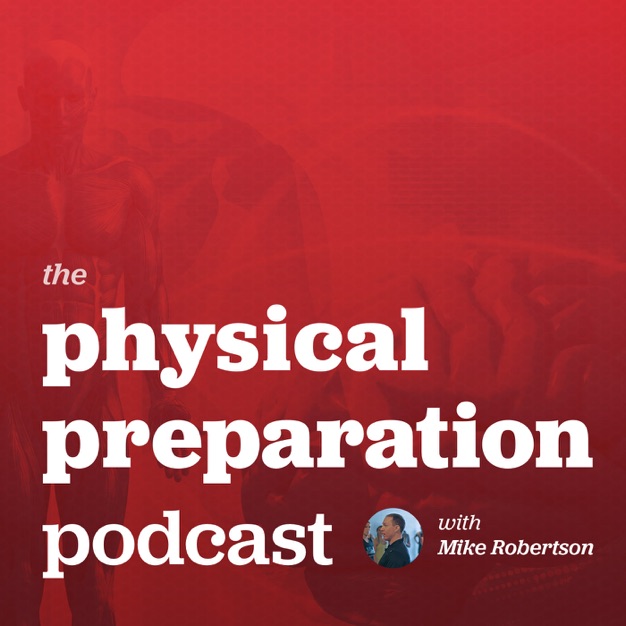 Physical Preparation Podcast – Robertson Training Systems
Physical Preparation Podcast – Robertson Training Systems
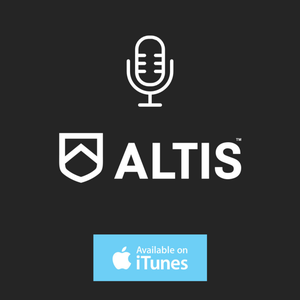 ALTIS World
ALTIS World
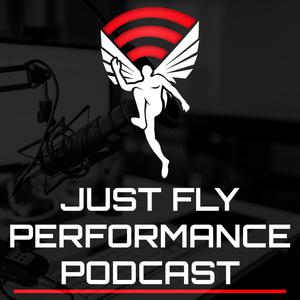 Just Fly Performance Podcast
Just Fly Performance Podcast
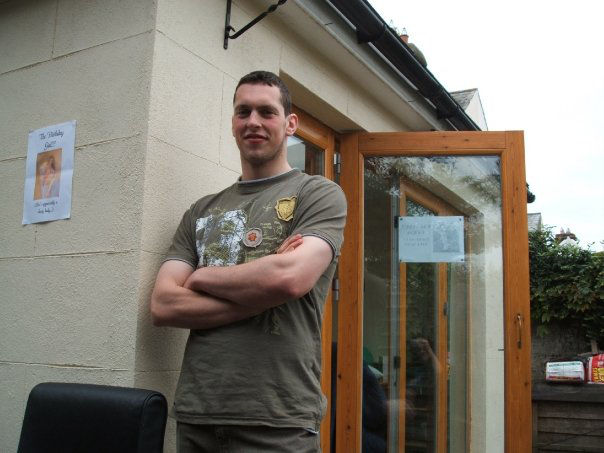 All Things Strength & Wellness
All Things Strength & Wellness
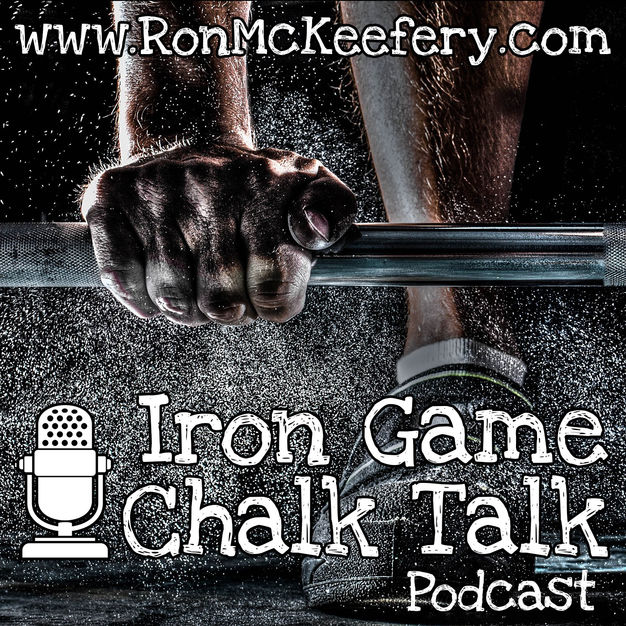 Iron Game Chalk Talk with Ron McKeefery
Iron Game Chalk Talk with Ron McKeefery